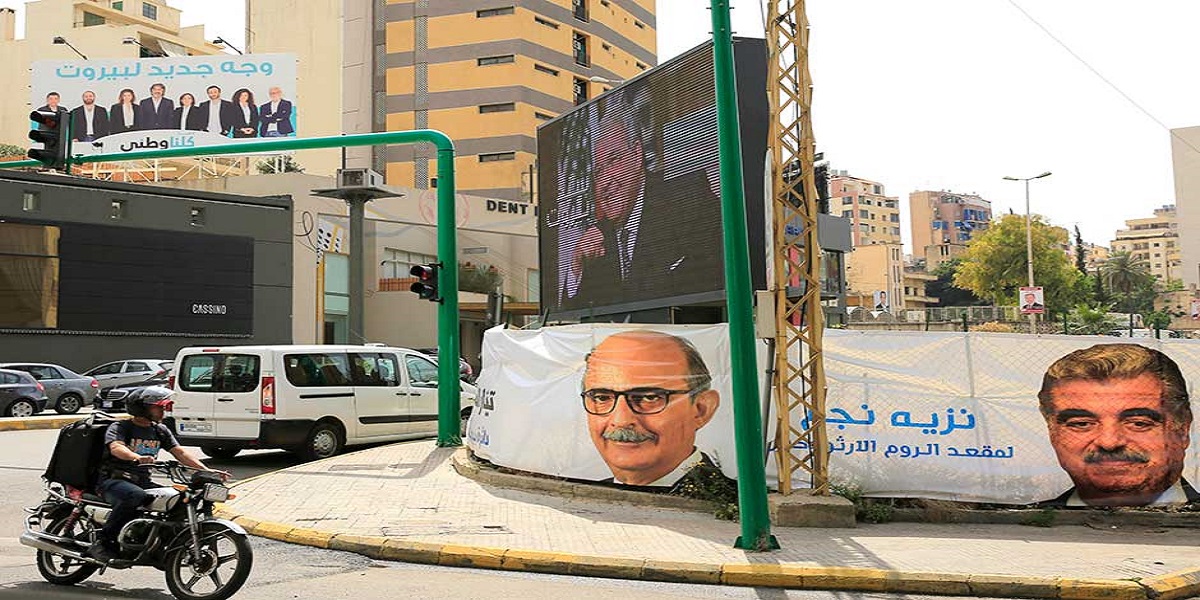
by arabnews.com — Rashid Hassan — RIYADH: Lebanese expatriates in Saudi Arabia will cast their votes on Friday, taking part in their country’s parliamentary elections. Fawzi Kabbara, Lebanon’s ambassador to Saudi Arabia, told Arab News: “The diaspora will vote here at the Lebanese Embassy in the Diplomatic Quarter on May 6. The polling will start at 7 a.m. and will continue till 10 p.m. Special arrangements to successfully complete the voting have been made at the embassy.” There are nearly 9,000 voters who will vote in Riyadh and Dammam, he said, adding: “We have another center for Jeddah, where about 4,500 Lebanese expats will vote. After the polling is completed, the ballot papers will be sent to Beirut and will be counted along with the votes cast in Lebanon on May 15.”
Raafat Aoun, a Lebanese expat working in the Kingdom, told Arab News: “The current political situation in Lebanon is decisive and will determine the fate of the country. Because of the monetary and fiscal policies followed for 32 years, Lebanon is in a big predicament. The state is bankrupt because of the quotas, job corruption and policies that have obliterated the middle class, so this stage is delicate, very sensitive.” He added that the people want to take their destiny into their own hands and remove the ruling elite from the government. “The people have discovered that this class has been lying to them with slogans that have led to divisions based on sects and religions. Two weeks are left, and we hope people wake up and make a refreshing change.”
Bol news —The first round of parliamentary elections in Lebanon will be launched on Friday by Lebanese expats voting. Expats will be able to vote in 59 countries, but just 10 will begin voting on Friday. The Friday weekend is observed by expats in these nations, which include Saudi Arabia, Qatar, Kuwait, Syria, and Iraq. The second round of voting will take place on May 8 in nations with a Sunday weekend.
Lebanon’s elections will be held on May 15, with candidates contesting in 15 districts throughout all governorates and districts to choose new members for 128 parliamentary seats. The present parliament’s term, which was elected four years ago, will expire on May 21. The candidate and media code of conduct go into effect 24 hours before the election. The ruling parties have utilized every method of invitation, intimidation, and sectarian divisiveness to maintain their continued presence in parliament, thwarting the opposition’s painstaking efforts to turn the tables.
The list of candidates is dominated by Christian-influenced areas, with 269 registered in Mount Lebanon and 292 in the north. The south, which has a Shiite majority, has the lowest percentage of candidacy, with just 105 candidates running, while Beirut has 174 and the Bekaa area has 203. Nadim Abdelmalak, president of Lebanon’s supervisory commission for elections, criticized “the chaotic opinion polls that claim the victory of one candidate and the failure of another, despite the warnings sent by the commission to those concerned. The election requires every opinion poll prepared for the announcement to be provided to the commission.” Abdelmalak criticized “the magnitude of hate speech and treason, given that the electoral law requires that such rhetoric be mitigated, steering away from abasement, revilement, incitement to sectarian conflict and sometimes terrorism, perhaps used to reinforce sectarianism.”
According to the Lebanese Association for Democratic Elections, money was used to purchase loyalty in order to assure victory, in addition to offering help, promises, and electoral bribery. Some candidates seeking an election advantage utilized violence, coercive methods, influence, public resources, racial and sectarian speech, libel, and slander, according to the organization. In southern Lebanon’s Sarafand area, intimidation began to prevent opponents of Shiite parties Hezbollah and the Amal Movement from registering their candidacy. The same duo used intimidation against other Shiite candidates, notably Sheikh Abbas Al-Jawhari, in the northern Bekaa area. During an election meeting he held, gunshots and rockets were fired.
At a religious gathering in Baalbek, candidate Hassan Raad was thrashed. Previously, the Amal Movement and Hezbollah persuaded some families to reject female candidates on rival lists. As a result, three Shiite contenders, Ramez Amhaz, Hayman Mchayek, and Rifaat Al-Masri, backed out of the race. Intimidation also occurred in Jbeil’s northern area. An unidentified drone was observed flying above candidate Faris Saeed’s area, which opposes Hezbollah and Iranian influence in Lebanese politics. An automobile was also seen driving about his residence in Qartaba, reportedly spying on him.
The incendiary atmosphere peaked when Sheikh Nazir Jishi called for the election of Hezbollah candidates and attacked the Lebanese Forces Party, using derogatory terms against women in predominantly Christian tourist areas, to the point where he was condemned by Hezbollah and the Supreme Islamic Shiite Council. Visits by Gebran Bassil, president of the Free Patriotic Movement, to several regions have been received with widespread condemnation, owing to Bassil’s association with Hezbollah. During his visit to Akkar in northern Lebanon, Bassil’s vehicle was halted, and photos and signs of the party were destroyed, developing into a violent clash.
Sunni voters are classified into two groups. The first group, the bulk of whom are devoted followers of Saad Hariri’s Future Movement, will abstain from voting, but the second believes there is a potential for change, pointing out that the Sunni scene controls more than half of Lebanon’s electoral districts. Hassan Nasrallah, chief of Hezbollah, described the vote as “the most important political battle in Lebanon.” In March, he stressed that “it’s important for all Hezbollah’s MPs to win and that we should work toward obtaining the majority.”



